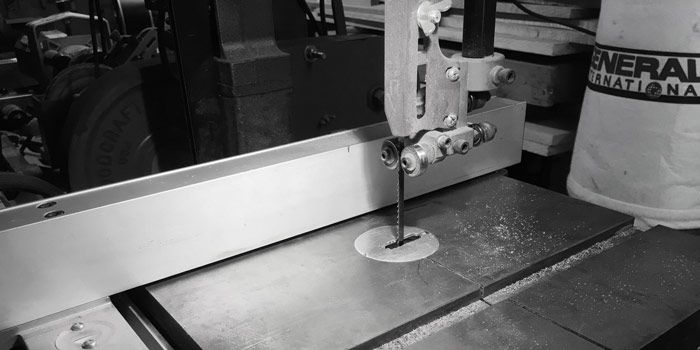The power of the hobbyist
Many believe hobbyist woodworkers couldn’t possibly be as good, fast, and talented as pros, but Vic Tesolin argues this is a silly notion.
There are two ways that I often hear the term “hobbyist” being thrown around. The first is by “professional” woodworkers and is usually in a disparaging tone. Like a hobbyist couldn’t possibly be as good, fast, and talented as a pro. The other way is by hobbyists themselves and is usually preceded by the words “I’m just a …”. In either case, I don’t understand why this is.
Just because a person charges money for their woodworking doesn’t mean that they are necessarily any good at it. You’d be shocked at what non-woodworking patrons will not notice or care about. To my way of thinking, being a professional woodworker can mean that you are a slave to the grind. I’ve been there and it isn’t always fun and pretty. It’s not often that you get to do the kind of woodworking that you want and often times you are left begging to be paid for the work that you do complete. Not to mention having to do all of the other drudgery like bookkeeping, accounting, website upkeep, and marketing. All of these tasks need doing and no one person is good at them all. When you’re a small, one-person shop, putting food on the table can be difficult. The other thing to keep in mind is that even the most successful furniture makers often supplement their incomes with teaching and writing.
A few years ago I turned furniture making into a hobby, and this ended up being the best decision I could have made for my overall well-being. For a while there I was starting to dislike woodworking because of all the other stuff I mentioned earlier. Add more pressure to the situation by having a young family and wanting to contribute to the household income, and the stress wasn’t good. Getting a job outside of furniture making allowed me the freedom to build what I wanted, when I wanted. I’ve stayed in the woodworking industry all these years, but what I make in my hobbyist shop simply brings in play money to help feed a healthy tool addiction.
So please don’t be ashamed of your hobbyist designation. Hobbyists get to explore as many (or as few) aspects of the craft as they want. They don’t have the pressure of putting food on the table and making rent, so they can do whatever they want. No rabbit holes are off limits for the hobbyist because in the end it’s just your personal time and some materials. So, go ahead, be a proud hobbyist, and hold your chest out with pride.

















Comments
I spoke with a graffiti artist who turned his renegade passion into a business. He expressed the same sentiments. You lose something when your hobby becomes a job. Be careful what you wish for.
It's an old old story - an engaging and beloved hobby becomes a business millstone around the neck. The activities of the once-a-hobby are overwhelmed by accountancy, marketing and other modern striving sicknesses.
Conversely, every now and then someone makes their hobby-turned-business into a vastly increased opportunity to "go down rabbit holes" in trying and succeeding at things they might never have the time, drive or opportunity to pursue as hobbyists. After all, the hobbyist still needs a day job and that eats up time and energy.
But it seems no easy thing to turn a hobby into a business that's also an amplification of the hobby-pleasures. One trick is to have a willing wife or husband who will do the drudge work of marketing, accountancy etc., whilst the "businessman" stays in the shed making wonderful things that folk flock to buy.
No one will buy my stuff, though. I have to give it away! I can't do fashionable, see? Ikea-look: ugh. Just as well. The ladywife is too busy cooking fantastic food, making stuffed toys 10X better than the shop-bought and creating a fantastical garden. :-)
Then there's the long dog walks in the forest, the exhausting bike rides (she's got an electric motor in hers and it's nothing but vast hills here) and the .....
Lataxe
In archeology circles, non-professional archeologists are often referred to as "avocational", rather than hobbyist or some other term that might be viewed as disparaging. Perhaps we "non-professional" woodworkers should adopt the term "avocational woodworker".
I consider myself a professional Hobbyist and avoid the confusion!
The thing with a hobbyist woodworker is that we build for the love of it. I can't find fault in that.
Log in or create an account to post a comment.
Sign up Log in